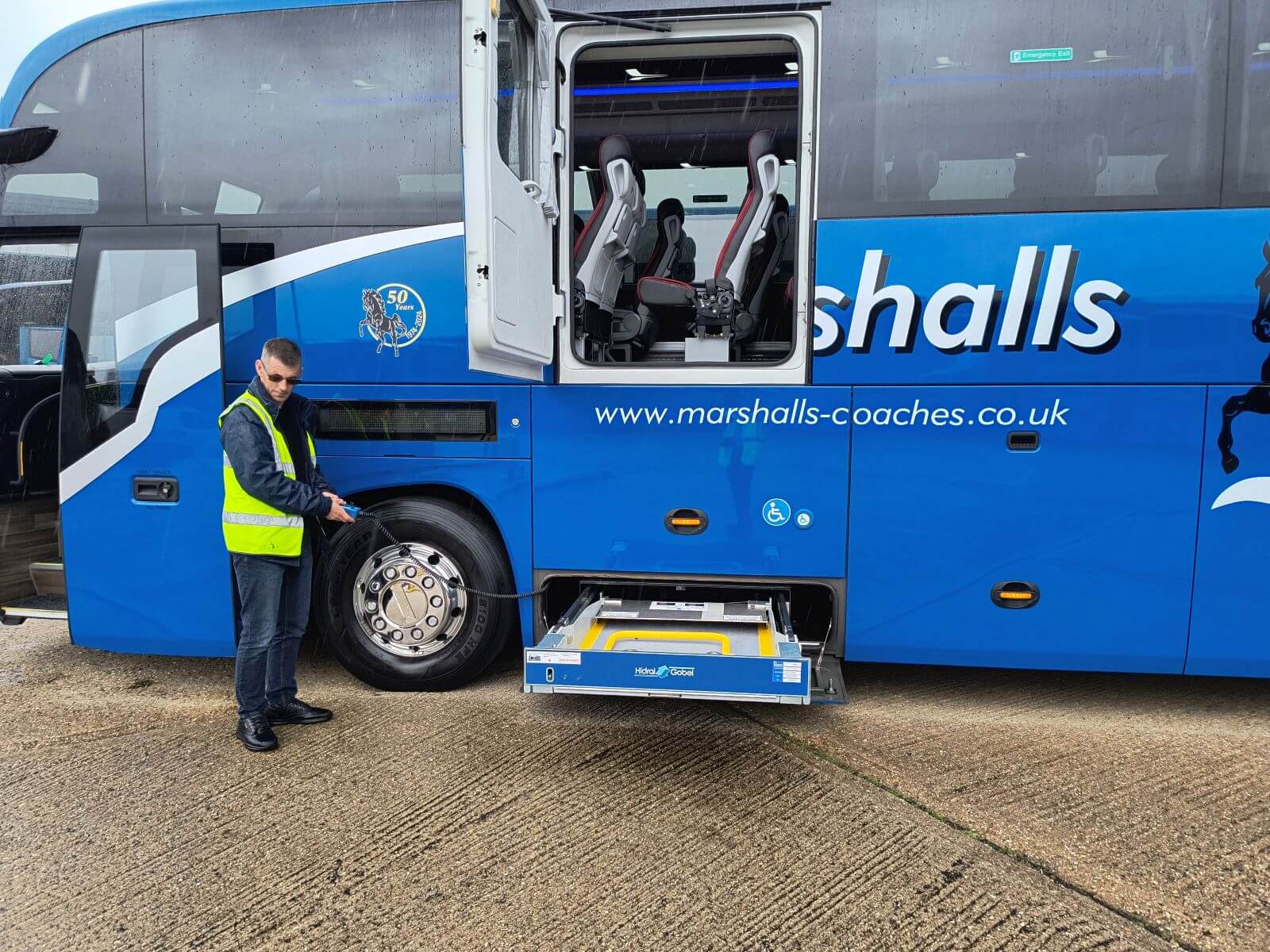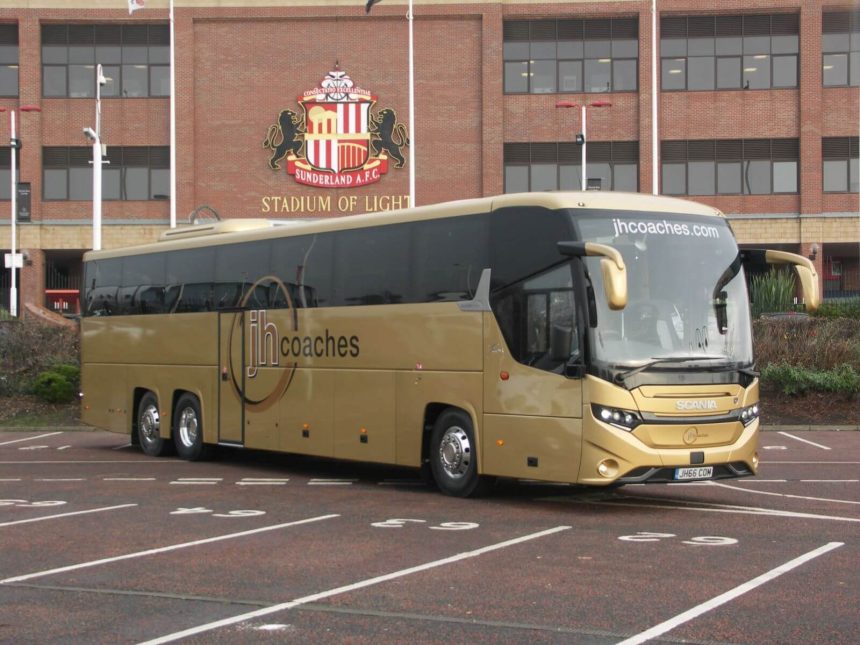Clarity on PSVAR, better appreciation of the value of the sector and fixing delays at ports are among the actions for their sector that coach operators would like to see prioritised by the next government.
With the general election on 4 July, Labour is expected to oust the Conservatives and form a majority government. Whatever the outcome, coach will not be an immediate priority, but the industry nevertheless has a long wish list for the next parliament.
Greater recognition
While bus may be higher on ministers’ agendas, a greater recognition of the coach industry is much sought-after by operators and may go a long way towards rectifying other challenges they face.
That is the view of Danny Henshaw, Director of Henshaw’s Executive Travel in Moreton-in-Marsh. “Everything from the government seems to be ‘bus’,” he says. “Coach is as important as bus. Candidates are all going around on the ‘battle buses’, but they’re coaches!”
Ian Shipley, Director of JH Coaches of Birtley, agrees. “I would like to see some recognition from the government that our industry actually exists,” he says. “We have the challenges of decarbonisation and congestion. Coaches are one of the solutions. They are one of the cleanest ways of moving people from A to B.
“This has all been said so many times before, but no one is listening. The bus and the rail industries have a much larger say in parliament. When the strategies are drawn up, they ignore coaches.”
Dover issues
For Michael Lee, CEO of Pegasus Coaches of Southampton, problems experienced in trying to leave the country via the Port of Dover are the top concern. He is also worried about the impact of the introduction of the EU Entry/Exit System (EES), planned for October.
“We do 450 European tours a year and it’s an absolute shambles,” he says. “French immigration does not supply enough people to check passports quickly enough in coaches. The new entry system will make it 10 times worse.”
I would like to see some recognition from the government that our industry actually exists – Ian Shipley
Mr Lee believes the next government should insist that immigration checks are handled in France where he claims it would be easier to staff and there is more space.
Of the impact of that on his business, he says: “The financial costs are massive. We’re having drivers leave the industry, left, right and centre. They could be there for six hours, which then makes them run illegally and we’re getting pulled over and fined. The knock-on effects are massive.”
PSVAR clarity
PSVAR has long been a hot topic for the coach industry and will be a consideration for the next government. With a Department for Transport (DfT) response to the 2023 call for evidence on a review of PSVAR still awaited, Mr Henshaw is one who would like to see more certainty after years of exemptions and reviews.
“A clear resolve of what’s happening with PSVAR would be great,” he says. “It seems to be going down the road and down the road.”

With the EU having already changed coach drivers’ hours laws, Mr Henshaw would like to see a review of the applicable legislation here. “Now we’re out of the EU, we are supposed to be able to tweak what we want within reason,” he says. “We’ve done a consultation over drivers’ hours and we’ve got this opportunity to change things, but we’re not.”
He would also like certainty around an end date for sale of new non-zero-emission coaches so that investment in a rapidly changing market can be made with more confidence. “All these wonderful decisions have been made, but the time limit is not really there for anybody. You’re not going to invest in stuff which is moving so quickly at the moment.”
Driver shortage
Driver recruitment issues are another challenge which needs addressing by government, according to Mr Lee, who echoes RHA’s recent call (see p14) for a complete removal of the 50km limit for drivers aged 18 and 19.
DfT is consulting on removing that restriction but only for regular services.
He says: “Unless they’re on a designated registered route, they can’t really drive in our industry. There’s such a shortfall of drivers. We must have turned away close to £2 million worth of work easily this year. There’s no point buying more coaches because we can’t fill them with drivers.”
Mr Shipley would also like to see more funding for the coach sector. “Politicians keep bringing in increased legislation in terms of accessibility and other things. We can accept that, but how about some funding to help us achieve it?” he asks.



























